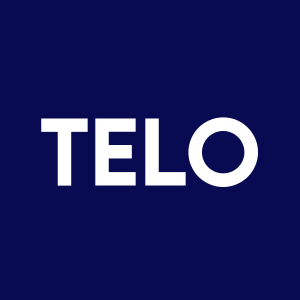Telomir Pharmaceuticals Confirms Lifespan Restoration and Normalization of Accelerated Aging in Preclinical Model of Progeria (A Rare Genetic Disorder Causing Rapid Aging)
Rhea-AI Summary
Telomir Pharmaceuticals (NASDAQ:TELO) announced breakthrough findings from a preclinical progeria lifespan study conducted with Nagi Bioscience SA. The study, using C. elegans models with wrn-1 gene mutation, demonstrated that Telomir-1 effectively restored lifespan and normalized accelerated aging effects to levels comparable with normal specimens.
The research focused on treating Progeria, a rare genetic condition affecting fewer than 400 children worldwide, causing rapid aging and premature death. Telomir-1, a novel small molecule, works by controlling excess metal activity, reducing oxidative stress, preventing ferroptosis, lowering inflammation, and regulating telomere shortening processes.
The company has demonstrated Telomir-1's therapeutic potential across multiple areas, including type 2 diabetes reversal and Wilson's disease treatment. Following these positive results, Telomir plans to initiate in vitro studies using human progeria cell lines to further validate the treatment's effectiveness.
Positive
- Successful preclinical study showing lifespan restoration in progeria models
- Demonstrated effectiveness in normalizing accelerated aging effects
- Multiple therapeutic applications identified including type 2 diabetes and Wilson's disease
- Advanced in vivo microfluidic technology validation
Negative
- Early-stage research to preclinical models
- Human trials not yet initiated
- Small target market for progeria (fewer than 400 patients worldwide)
News Market Reaction
On the day this news was published, TELO gained 7.57%, reflecting a notable positive market reaction.
Data tracked by StockTitan Argus on the day of publication.
MIAMI, FL / ACCESSWIRE / January 7, 2025 / Telomir Pharmaceuticals, Inc. (NASDAQ:TELO) ("Telomir"), an emerging leader in age-reversal science focused on treating the root causes of diseases rather than just their symptoms, announced today potentially groundbreaking findings from a preclinical progeria lifespan study conducted in collaboration with Nagi Bioscience SA. Utilizing C. elegans (nematode) models, in which the study demonstrated restoration of shortened lifespan and normalization of accelerated aging with Telomir-1.
The study was conducted in nematodes (C. elegans) with a mutation in the wrn-1 gene, which is equivalent to a gene in humans associated with Werner Syndrome (a form of Progeria). Compared to normal (wild-type) nematodes, those with wrn-1 depletion showed a significantly reduced mean and median lifespan. Utilizing advanced in vivo microfluidic technology, the study demonstrated lifespan restoration and normalization of accelerated agingeffects in wrn-1-mutated nematodes treated with Telomir-1. The treatment effectively restored longevity to levels not significantly different from normal animals. These effects included an extended healthy lifespan and the normalization of several physiological parameters, such as movement velocity and tail amplitude.
Laurent Mouchiroud, Ph.D., Co-founder and CSO of Nagi Bioscience SA, commented, "The analysis confirms that Telomir-1 not only restores lifespan but also effectively counters the decline observed in untreated populations. These findings underscore Telomir-1's potential to transform how we address age-related conditions by targeting their underlying cellular mechanisms."
Understanding Progeria: How Cellular Dysfunction Drives Accelerated Aging
Progeria, or Hutchinson-Gilford Progeria Syndrome, is a rare genetic condition that causes children to experience rapid aging. Fewer than 400 children worldwide are affected by this devastating disease, which leads to growth failure, joint stiffness, cardiovascular complications, and premature death, often in the early teens or twenties.
At the molecular level, progeria is driven by the accumulation of progerin, an abnormal protein that disrupts the cell nucleus and impairs normal gene expression. This damage accelerates telomere shortening, leaving DNA vulnerable and contributing to widespread cellular dysfunction. Telomeres, the protective caps at the ends of chromosomes, naturally shorten with normal aging, but this process is dramatically accelerated in progeria, leading to premature cellular aging.
Telomir-1: A Novel Therapeutic Approach
Telomir-1 is a groundbreaking small molecule designed to target key causes of cell damage and dysfunction. It works by controlling excess metal activity in the body, which helps reduce oxidative stress (damage caused by harmful molecules), prevent ferroptosis (a form of cell death linked to iron), lower inflammation, and regulate processes that can lead to telomere shortening, the progression of diseases, and faster aging.
Telomir-1's potential to regulate essential metal ions is central to its therapeutic approach:
Iron Overload: Excess iron contributes to oxidative stress, mitochondrial dysfunction, neurodegeneration, ferroptosis and accelerated cellular aging. It is linked to conditions such as insulin resistance, Alzheimer's disease, bone disorders, and Friedreich's ataxia.
Copper Imbalances: Abnormal copper levels impair organ function and disrupt metabolism, contributing to conditions such as neurodegenerative diseases and Wilson's disease.
By addressing these imbalances, Telomir-1 has the potential to protect against cellular damage and support healthy cellular function, further supporting its potential to mitigate age-related conditions.
"These results represent a significant milestone in our mission to develop therapies that address the root causes of diseases," said Dr. Itzchak Angel, Chief Scientific Advisor at Telomir. "Telomir-1's ability to significantly restore lifespan and normalize accelerated aging in progeria models demonstrates its promise as a transformative therapeutic option."
Advancing the Science of Aging
Telomir has demonstrated Telomir-1's broad therapeutic potential across multiple preclinical studies:
Reversing Aging and Improving Longevity: Telomir-1 has shown the ability to reverse the biological clock, improving both lifespan and health span in preclinical models.
Type 2 Diabetes: Telomir-1 appears to address insulin resistance at its root, achieving reversal to near pre-diabetic insulin resistance levels and glycemic control in preclinical studies.
Wilson's Disease: By regulating copper metabolism, Telomir-1 offers promise as a treatment for copper-related disorders, such as Wilson's disease.
"Our research continues to validate Telomir-1's ability to tackle aging at its core," said Erez Aminov, Chairman and CEO of Telomir. "By focusing on critical cellular processes, Telomir-1 offers a novel pathway to addressing conditions like progeria while also exploring its broader potential in other age-related diseases."
Next Steps in Progeria Research
Building on these findings, Telomir is preparing to launch in vitro studies using human progeria cell lines. These laboratory-based studies aim to further demonstrate Telomir-1's potential to restore cellular health and normalize aging processes.
About Telomir Pharmaceuticals, Inc.
Telomir Pharmaceuticals, Inc. (NASDAQ:TELO) is a pre-clinical stage pharmaceutical company seeking to lead development in age-reversal science. The Company is focused on the development of Telomir-1, a novel small molecule designed to lengthen the DNA's protective telomere caps, which are crucial in the aging process. The Company's goal is to explore the potential of Telomir-1 starting with ongoing research in animals and then in humans.
Telomeres are the protective end caps of a chromosome made up of DNA sequences and proteins. As humans age, telomeres shorten, with metal reactivity accelerating the process, which presents humans and pet animals with an increased chance of contracting a number of degenerative and age-related diseases. Telomir's goal is to develop and gain regulatory approval for Telomir-1, proposed to be dosed orally, with the broader aim of promoting longevity and enhancing overall quality of life.
The Nobel Assembly at Karolinska Institute (Sweden) awarded the Nobel Prize in Physiology or Medicine in 2009 for the discovery of how chromosomes are protected by telomeres and the enzyme telomerase.
Telomir-1 is in preclinical development and has not yet been tested in humans. There is no assurance that Telomir-1 will proceed through development or will ultimately receive FDA approval for marketing.
Cautionary Note Regarding Forward-Looking Statements
This press release, statements of Telomir Pharmaceuticals' management or advisors related thereto, and the statements contained in the news story linked in this release contain "forward-looking statements," which are statements other than historical facts made pursuant to the safe harbor provisions of Section 27A of the Securities Act of 1933, as amended, and Section 21E of the Securities Exchange Act of 1934, as amended. These statements may be identified by words such as "aims," "anticipates," "believes," "could," "estimates," "expects," "forecasts," "goal," "intends," "may," "plans," "possible," "potential," "seeks," "will," and variations of these words or similar expressions that are intended to identify forward-looking statements. Any such statements in this press release that are not statements of historical fact may be deemed to be forward-looking statements. These forward-looking statements include, without limitation, statements regarding (i) the anticipated benefits of the preclinical testing results described herein, (ii) anticipated timelines and subject matter for additional preclinical and clinical testing of Telomir-1 and (iii) the potential therapeutic benefits of Telomir-1 generally.
Any forward-looking statements in this press release are based on Telomir's current expectations, estimates and projections only as of the date of this release and are subject to a number of significant risks and uncertainties that could cause actual results to differ materially and adversely from those set forth in or implied by such forward-looking statements. These risks and uncertainties include, but are not limited to, the potential use of the data from our studies, our ability to develop and commercialize Telomir-1 for specific indications and safety of Telomir-1. These and other risks concerning Telomir's programs and operations are described in additional detail in its Annual Report on Form 10-K for the fiscal year ended December 31, 2023, which is on file with the SEC. Telomir explicitly disclaims any obligation to update any forward-looking statements except to the extent required by law.
Telomir's lead compound, Telomir-1, is being investigated for its potential to address a range of conditions, including Type 2 diabetes, Wilson's disease, progeria, Alzheimer's disease, and cancer. The company's innovative approach aims to treat the root causes of disease, offering a promising path forward in improving patient care.
For more information, visit www.telomirpharma.com.
Contact Information
Helga Moya
info@telomirpharma.com
(786) 396-6723
SOURCE: Telomir Pharmaceuticals, Inc.
View the original press release on accesswire.com







